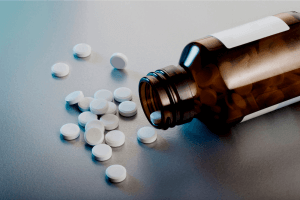Dax Shepard, Relapse, and Recovery
It’s natural for people to make mistakes. After all, human nature is the social and psychological attributes that characterize humans, particularly those qualities that are distinct from other living things.
Couple human nature with a disease like addiction, and mistakes are bound to happen. Emotions are even heightened. Not only from the family and friends of the individual battling a substance use disorder, but from the addict themselves.
Imagine being 16 years sober and making the mistake of using again. The fear of ridicule from family and friends. The  disappointment in oneself. The guilt each time there’s a glance in the mirror.
disappointment in oneself. The guilt each time there’s a glance in the mirror.
And when that individual is Celebrity Actor and Podcaster, Dax Shepard, the fear of what fans will say on social media is an additional scary thought. Even the fear of open doors of opportunity that may close forever.
Relapsing is part of the process some addicts face. It’s not a failure, but simply a part of a process.
At American Addiction Centers (AAC), a nationwide leader in addiction treatment with professional staff and licensed physicians, we understand the needs of those battling a substance use disorder.
Not only do we not pass judgement on patients, but compassion is shown instead, as many of our team members are successfully in recovery themselves and provide genuine care from experience. If you’re battling a substance use disorder or have relapsed, please reach out for help.
Substance Use Disorder and Relapse
A drug addiction is a chronic disorder identified by a compulsive need to seek out drugs, the ongoing use of substances in spite of consequences, and it leaves lasting changes in the brain. It’s both a mental illness and a brain disorder.
Relapse is the return to drug use after having not used drugs or alcohol for a certain period of time. It’s so common, that individuals may have one or more relapses on their journey to recovery. Getting sober and staying sober takes practice.
Furthermore, keep in mind that an individual may need to consult their physician, depending on what type of substance(s) were used, the quantity, the length of abuse since relapse, medical history, and body type. Some situations and circumstances may require a medical detox for the patient’s safety.

Substance abuse statistics from 2017:
- Roughly 38% of adults struggled with an illicit drug disorder.
- Nearly 74% of adults battling a substance use disorder also struggled with an alcohol use disorder.
- 8.5 million American adults struggled with both a substance use disorder and a mental health disorder (co-occurring disorders).
Individuals battling an addiction may feel alone, but they aren’t. Many are struggling with the same disease. Many have gotten help. Many have relapsed. And many have attempted sobriety once again. Even though mistakes are not always easy to handle, as long as an individual continues to try, there’s always room for progress and growth.
Recovery is an Ongoing Process
The promising news is that although drug addictions cannot be cured, they can be treated.
There are research-based methods that help people to stop using substances, which allows them to lead productive lives. This is what is called being in “recovery.”
Relapse to substance abuse does not mean that treatment has failed. Because addiction is chronic in nature, relapse for some individuals, may just be part of their road to recovery.
If you or a loved one has relapsed and is struggling with a substance use disorder, you’re not alone. There are resources here to help you to achieve long-term sobriety and to live a healthy and productive life, regardless of any mistakes that you’ve made.
